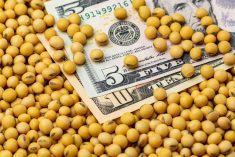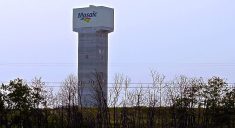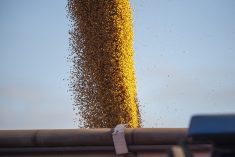Chicago | Reuters — Hurricane Irma stripped oranges from trees and prompted Tyson Foods to shut meat plants in Florida and Georgia on Monday to keep workers safe.
Tyson, the biggest U.S. meat company, hopes to resume normal operations soon at chicken plants it shuttered in Cumming, Dawson and Vienna, Ga., and at a beef facility in Jacksonville, Fla., spokesman Derek Burleson said.
Irma, one of the strongest Atlantic hurricanes ever recorded, hit a wide swath of Florida on Sunday and Monday before moving inland into neighbouring states.
Read Also

U.S. grains: Corn sets contract lows on expectations for big US crop
Chicago Board of Trade corn futures set contract lows and soybean futures sagged on Friday on expectations that beneficial weather for U.S. crops will lead to bumper harvests, analysts said.
In Georgia, the Port of Savannah, which exports almost a third of all U.S. poultry, will remain closed through Tuesday, the Georgia Ports Authority said.
Among the areas hit in Florida was the state’s prime citrus-producing region, said Lisa Lochridge, spokeswoman for the Florida Fruit and Vegetable Association.
Florida is ranked first among U.S. states in production value for oranges and in 2015 produced US$1.17 billion of the fruit, accounting for 60 per cent of the value of total U.S. orange production, according to Florida’s agriculture department. The state is also a major producer of tomatoes and sugarcane.
“The fruit was just stripped from the trees by the wind,” Lochridge said, citing early reports from orange growers. Oranges knocked to the ground cannot be consumed, she said.
In southern Florida, heavy rain also flooded orange groves, forcing growers to pump out standing water to reduce the risk of disease hurting trees, she said.
Shelley Rossetter, spokeswoman for the Florida Department of Citrus, said “everyone is busy assessing their properties.”
Fertilizer maker Mosaic Co. said Irma damaged facilities, including a fertilizer warehouse at Bartow, Florida, and caused disruptions in the supply chain that are expected to impact third-quarter phosphates production volumes.
Mosaic has also stopped making phosphate price offers to domestic and international customers due to uncertainty about product availability and its ability to ship product after the storm, according to a company statement.
Mosaic has a storage and shipping facility at the Port of Tampa Bay and is the biggest tenant by volume. Crews from Mosaic and the port will return there to check for damage to storage tanks as soon as winds diminish below tropical storm force status, said Paul Anderson, the port’s president.
Power outages
High winds snapped power lines and left about 7.3 million homes and businesses without power in Florida and elsewhere in the U.S. Southeast, state officials and utilities said. They said it could take weeks to complete repairs.
Warehouses certified by the Intercontinental Exchange to store coffee remained closed on Monday, and at least one of them was without power.
Cal-Maine Foods, the biggest U.S. egg producer, said some egg farms and production facilities in Florida and Georgia suffered flooding and minor damage from the storm and were operating on back-up power generators. The company does not expect any material loss in egg production, though.
“At this time, it is too soon to tell just how much Hurricane Irma has devastated the agriculture industry,” said Adam Putnam, Florida’s agriculture commissioner.
Grain handler Archer Daniels Midland said it was closing facilities as needed because of Irma. The company’s oilseed processing facilities at Valdosta and Dawson, Ga. are within the path of the storm.
In South Carolina, the Port of Charleston halted shipping operations from 2 p.m. ET due to the storm, the South Carolina Ports Authority said in a client advisory. It expects normal operations to resume on Tuesday.
The port handles exports of poultry, grapefruits and lemons, among other goods.
— Tom Polansek reports on agriculture and agribusiness for Reuters from Chicago. Additional reporting for Reuters by Theopolis Waters, Karl Plume and Michael Hirtzer in Chicago and Renita Young in New York.















